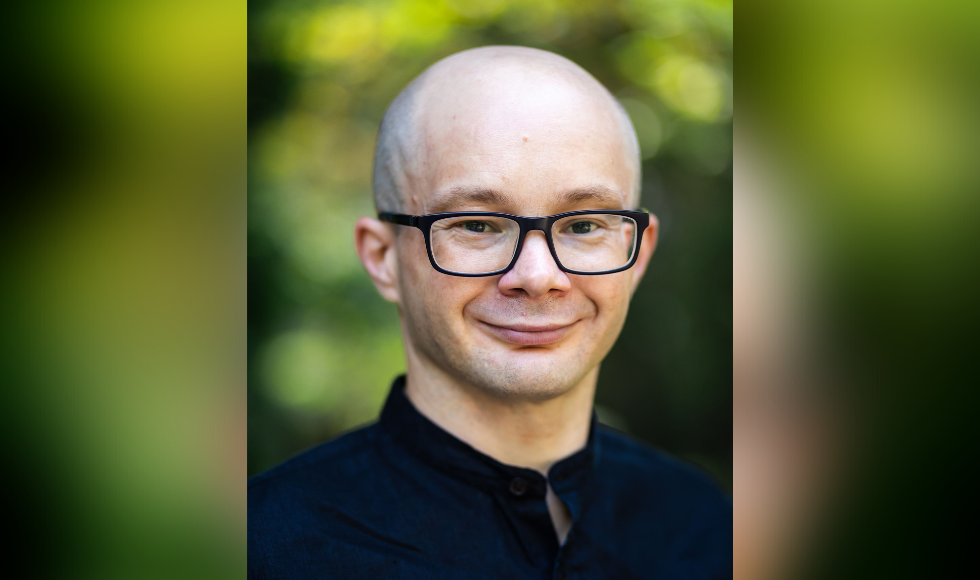How the thinkers of the past can help us deal with the present

Johannes Steizinger is an associate professor in the Faculty of Humanities’ Department of Philosophy. His primary field of research is European philosophy of the nineteenth and early twentieth century.
BY Sara Laux
January 31, 2023
Johannes Steizinger is an associate professor in the Faculty of Humanities’ Department of Philosophy, focusing on how European philosophers of the 19th and 20th centuries thought about life and culture, and how some of them contributed to the rise of National Socialism.
His most recent work is a SSHRC-funded project called Economic Pluralism Past and Present, which looks at solving current economic challenges by exploring alternative economic models proposed by 19th century philosophers such as G.W.F. Hegel, J.S. Mill and G. Simmel. The project is co-organized by Steizinger, Thimo Heisenberg of Bryn Mawr College and Helen McCabe of the University of Nottingham.
Here, Steizinger discusses his research and teaching, as well as his thoughts about the important role academics can play in responding to contemporary challenges.
You focus on the work of 19th– and 20th-century philosophers, and you’re also very focused on current events. Can you talk about having a foot in these two worlds?
I’m a historian of philosophy and of problematic ideas, specializing in European philosophy of the 19th and 20th centuries, and how philosophers contributed to the rise of National Socialism in Germany and other parts of Europe.
Recently, I’ve been looking more closely at how the far right has adapted itself in the last 40 years, as many of the ideas of the early 20th century have come back into the current political and social discourse.
The so-called New Right has managed to brand far right extremism in a very successful way. In a world where fascism isn’t an option anymore, how does the far right retain the ideals of fascism without actually calling it that? There has been a conscious and strategic effort to change the language of discourse — to talk about culture, rather than race, so we have cultural racism rather than biological racism.
They also don’t always run directly for office — the movement isn’t just about the pragmatic and grabbing power. Instead, they’re doing what they call “metapolitics,” changing the broader ideology, how people think and how they experience events.
I come from Austria, and in the 1990s, Austria began to critically examine its collaboration in the rise of National Socialism — Austrians were very engaged Nazis, and they haven’t really stood up and owned that part of their history. Coming from Austria, I see it as my duty to engage with this history.
As philosophers and intellectuals, it’s important to respond to the challenges posed by the rise of the far right — engaging the broader public in a way that people can understand, and also learning from the “outside world” beyond universities. Intellectuals need to develop critical tools to engage with society, and not from a top-down perspective.
Of course, that’s a very privileged position — as an academic, one has the freedom to address the challenges of society, to engage with many different people and learn from them. Not everyone is able to travel, for example, and experience what life is like in different parts of the world.
How has your own background informed your work today?
I grew up in the countryside, with a working-class background — studying philosophy was part of my rebellion as a young man against my parents who aimed to live an ordinary bourgeois life in the conservative social context of Catholic Austria.
In Austria, class is important — it circumscribes what you can become. When I was in primary school, I went to a private Franciscan school on scholarship, but when I got to the kind of high school that prepares you for university in Austria (there is a tiered high school system) I faced some challenges because of the social prejudices of my teachers. My German teacher made fun of me because I spoke in a working-class dialect, and my English teacher said my mother “hadn’t educated me” because I did not have the same manners as my peers from upper-class families.
Luckily, when I got to university, I was fortunate enough to have teachers who supported and believed in me, even though we worked on different things.
Those experiences taught me that it’s important for students to have educational experiences without discrimination, especially those students who don’t have the privilege that I had as a white male.
Tell me a little about your approach to working with students
My classes are closely connected to my research — one of the classes I teach is Nietzsche to National Socialism — and I really share my research with my students. When my students see what I’m enthusiastic about, it gets them excited about philosophy and encourages them to see themselves as philosopher, or so I hope.
Studying philosophy promotes autonomy and critical thinking skills, and it’s also a communal activity: we think together about how philosophy can contribute to making our society better.
It’s important that my students learn how engaged philosophers have always been with the world — even when it was in problematic ways. In philosophy, people still believe much too much in the myth of the exceptional genius and this ideology perpetuates the social exclusion of marginalized groups.
I teach a class on moral issues for the Integrated Business and Humanities program, and it’s one of my favourite classes to teach — it’s full of engaged students who really want to change the world in a practical way. We often have very different opinions and intuitions from each other, so they want to pick my brain for anything they can use in their future. And I learn a lot from them.
Read more about the Economic Pluralism project on their website.


